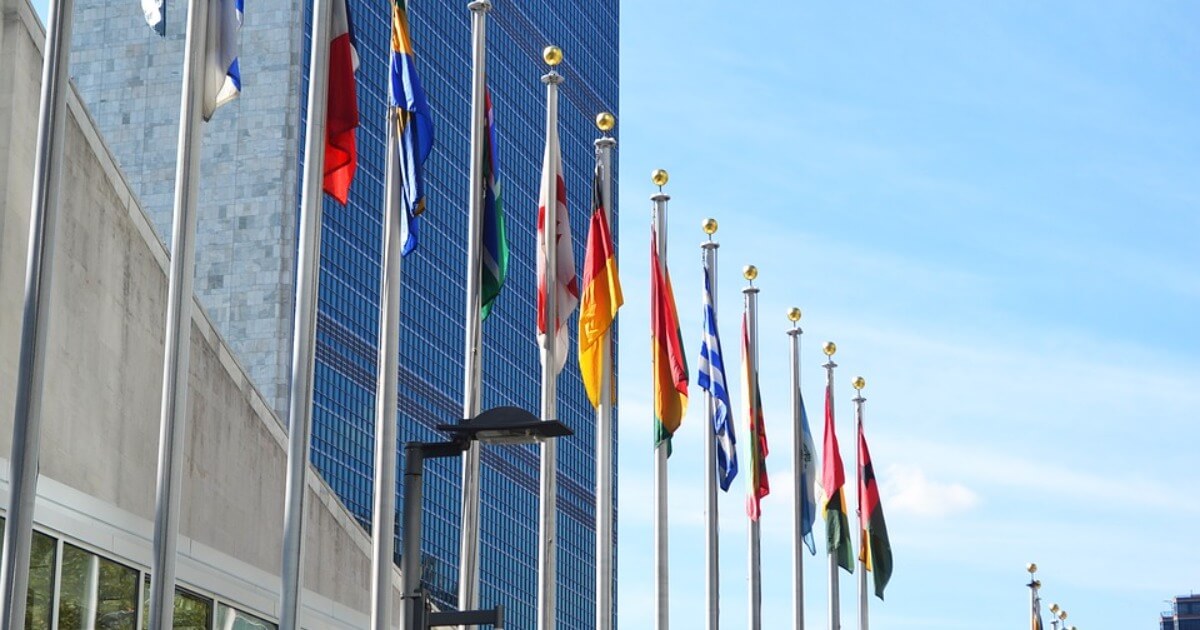Multilateralism Has Lost Its Way
Collective intelligence is needed to build a new multilateralism for the 21st century.
July 8, 2020

“Freedom, for what?” Lenin asked Fernando de los Ríos, the professor of political law and leading Spanish socialist in the 1920s and 30s. “Freedom to be free,” Rios rightly replied.
Multilateralism has lost its way
“Multilateralism, for what?” might be the question today. And the reply cannot simply be ‘to be multilateral’, as some would like.
Multilateralism is not an end in itself, but rather a means, a method, not an absolute goal. Troublingly, it has currently lost its way.
To begin with, there is no consensus about what we want to cooperate for, what we want to be multilateral for.
According to Francis Fukuyama, the political scientist, the great global challenges arise not from disagreements about how to cooperate, but rather an aimlessness about the reason to cooperate, stemming from a loss of global consensus.
Added to this is the inability of multilateralism to respond with the complexity required to address the current challenges and the overwhelming “Every man for himself!” response to disasters like COVID-19. As systems theory suggests, only complexity can defeat complexity.
The current coronavirus crisis could make the illness afflicting multilateralism either more acute or help overcome it, with more international cooperation beyond global health. The outcome is not yet clear.
So far, the coronavirus crisis has not strengthened multilateralism, which seems exhausted. But it is one of the major subjects of international debate.
About collective intelligence
Multilateralism is the alliance of powers in search of common goals. It is opposed to unilateralism (acting alone), to a-lateralism, which can lead to global anarchy and chaos, and to “Every man for himself!”
It opts for agreements where failure to agree would leave everyone worse off. It is usually linked to a set of international institutions that emerged from the Second World War.
Multilateralism, while requiring leadership, needs collective intelligence. In some respects, in the midst of confrontation between blocs during the Cold War, there were major doses of multilateralism.
Generally, the prospect of more multilateralism is good. More problems are global and conflicts of interest need to be managed and overcome peacefully.
Multilateralism had, and has, its goals and champions certain values, which are now being cast in doubt. The national races to stockpile Remdesivir, a drug used to treat COVID 19, is a clear example of the failure of multilateralism. That does not bode at all well for the management of an eventual vaccine.
Hyper-globalization
The COVID 19 calamity has highlighted a series of vulnerabilities. A hyper-globalization that minimized transaction and production costs and maximized efficiency.
It is true that globalization helped to lift billions of people out of poverty, but by dint of generating more inequalities within and between societies. The title, and the content, of a new book by Matthew Klein and Michael Pettis is revealing: Trade Wars Are Class Wars.
This gives a geopolitical slant to the U.S. politician’s famous dictum that “all politics is local.” Just ask Trump for confirmation.
These days, multilateralism is more important than ever, because it provides a way of countering nationalism and populism. Collective intelligence is needed to build a new multilateralism for the 21st century.
We need it for COVID 19 (a pandemic that may persist) and post-COVID 19, and to prevent and manage other calamities that may be on the horizon.
What is needed
Renewing multilateralism requires that it:
• Focuses on wellbeing and equality,
• embraces diversity,
• has solidity, legitimacy and causes no harm,
• respects subsidiarity (often confused with best practice),
• has systematic coherence.
In other words, it needs a whole-of-policy approach, a focus that encompasses all aspects of policies.
It also requires the participation of the United States. If Trump is re-elected in November it will be difficult and highly restricted, but not impossible. If Joe Biden wins, multilateralism will stage a comeback, but will take a very different form from the one it has had in recent decades.
We face the prospect not of the previous status quo being restored, but the need for a new construct, a reinvention.
Editor’s note: This article is based on an analysis published at Elcano Royal Institute: Multilateralism has lost its way.
Takeaways
Multilateralism is more important than ever, because it provides a way of countering nationalism and populism.
Multilateralism is not an end in itself, but rather a means, a method -- not an absolute goal. Troublingly, it has currently lost its way.
The coronavirus crisis has not strengthened multilateralism, which seems exhausted. But it is one of the major subjects of international debate.
We face the prospect not of the previous status quo being restored, but the need for a new construct -- a reinvention.
Collective intelligence is needed to build a new multilateralism for the 21st century.

